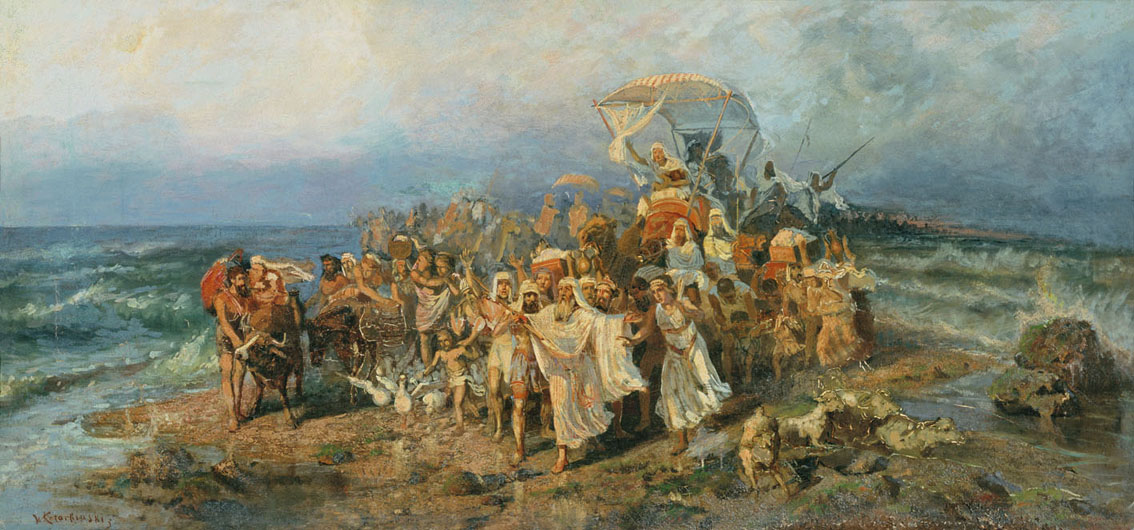
Passover is a holiday of many names; one of them is ‘Chag Ha-Che’rut’ {חג החרות} which is Hebrew for ‘the holiday of freedom.’.
The reason for this name is, of course, the story of the Exodus of the Children of Israel from Egypt – where they were slaves for a long time until God set them free and led them to the Promised Land.
In the ‘Haggadah’ {הגדה} (the main Jewish ritual book of Passover) the elements of ‘freedom’ and ‘to be free’ is a constant refrain. The most frequent usage of this word can be found in the original Aramaic term ‘Ben Chorin’ {בן חורין} which literally means ‘a noble man’ but in our context it means ‘a free man.’
Many of you probably recognized this Aramaic term in its Hebrew version ‘Ben Chur’ or ‘Ben Hur’ {בן חור} – yes, exactly the same as the famous American movie from more than fifty years ago! Charlton Heston played the main role of Judah Ben-Hur and the plot took place in Jerusalem during the Roman times.
Interestingly, since the ‘Haggadah’ was composed during the Roman period the concept of ‘a free man’ is fully based on the Roman perception of what it means to be a ‘free man’. Even today it is common for Orthodox Jews to sit in a special way – which was common among the ‘free men’ in ancient Rome – when attending the festive meal of the holiday.
In Hebrew, the name for this very unique way of sitting around the dinner table is ‘Le-Hasev’ {להסב} and it literally means ‘to turn’ or ‘to lean to one side’ exactly as was common in ancient Rome. If one visits the old small shops of the Ultra-Orthodox Jews in Jerusalem right before Passover, one could find a specially designed pillow that was made to meet the criteria of ‘sitting around the festive dinner like a free man’.
